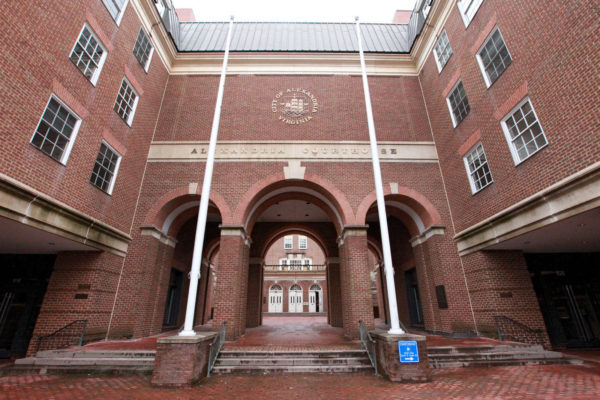As Alexandria grapples with the COVID-19 pandemic, the Commonwealth Attorney’s office is figuring out how to keep running the city’s Treatment Court.
The Treatment Court is an alternative to jail for individuals with substance abuse issues, and most participants have been to jail multiple times. There are currently eight participants in the court, which launched in August and usually meets every Thursday in the Alexandria Courthouse. But the building at 520 King Street is largely shut down now due to COVID-19.
“The program was just running fantastically until this hiccup,” Assistant Commonwealth Attorney David Lord, the Treatment Court coordinator, told ALXnow. “Ultimately we don’t know what it will mean for our participants, but we’ve provided the structure that if they are motivated will get them through it. They are all individually very motivated in their recovery.”
At the courthouse, all jury trials have stopped, multitudes of cases have been continued between 30 and 60 days, and the clerk’s office is doing business by appointment only.
“My understanding is that the number of people allowed in the courtroom is significantly reduced,” Commonwealth Attorney Bryan Porter said. “Inside courtrooms, provisions are being made to keep appropriate social distances. Hearings are going to be as brief as possible.”
Porter added, “The courts have significantly reduced active cases. They basically have continued multitudes of cases 30 to 60 days. There’s definitely going to be some type of layering of cases that is caused by this situation, but it’s an unprecedented crisis, and there’s no other way around it.”
Treatment Court participants, who have agreed to an increased level of supervision by a probation officer and weekly court appearances, are now being visited by police making home visits — from a distance. The five-phase program also requires group and individual therapy sessions and frequent drug testing, all of which is not possible at this time.
“Our focus has been what do we need to put in place to make sure our participants’ recovery doesn’t fall apart,” Lord said. “Participants are meeting with therapist remotely, through an app, to receive individualized therapy and substance abuse counseling twice a week… Even though many participants are not economically well off, everybody has a smartphone.”
The participants are also being provided with information on online therapy groups since all in-person Narcotics Anonymous and Alcoholics Anonymous meetings have been canceled.
“There’s a huge problem when you have someone in recovery when accountability and structure are not in place,” Lord said. “We don’t want them to have to start at square one after everything they’ve accomplished. That would be devastating to their lives.”


